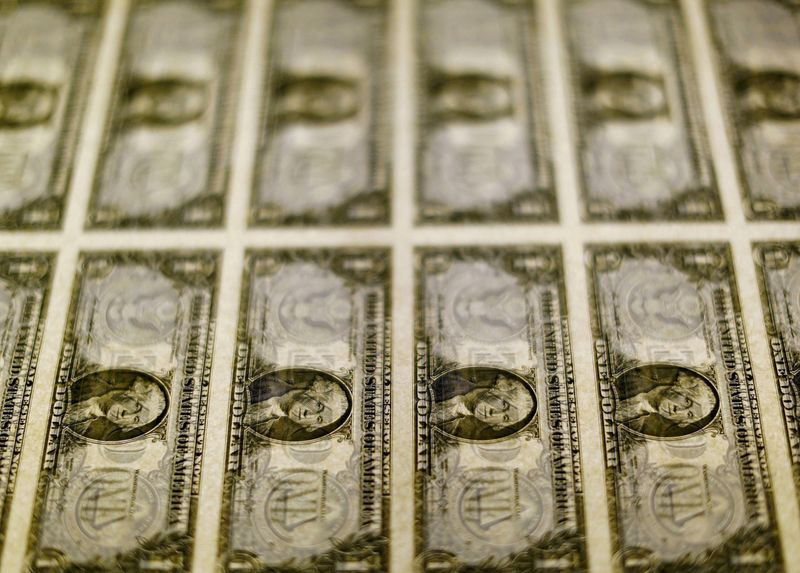By Ann Saphir and Howard Schneider
JACKSON HOLE, Wyoming (Reuters) -No safer than a bund. Or a gilt. Or an OAT.
Long touted as hands-down the world’s “safe haven” securities, the behavior of U.S. Treasuries during and after the COVID-19 pandemic calls that label into question, suggesting they are little different from the debt issued by the likes of Germany, Britain, France, or even big corporations.
That’s the key finding of new research presented at the Kansas City Fed’s annual research conference in Jackson Hole, Wyoming. It examines a shift in investor behavior in that period that raises questions about the “exorbitant privilege” the U.S. government has long enjoyed to borrow broadly on the global market even as federal budget gaps grow ever wider.
It’s a timely question given growing deficits are seen as a near certainty regardless of who becomes the next U.S. president.
New York University’s Roberto Gomez-Cram, London Business School’s Howard Kung and Stanford University’s Hanno Lustig also throw into question the assertion that the Treasury market was dysfunctional in that period – as asserted by the Federal Reserve when it launched its massive bond buying – or just rationally pricing the risk of a massive unfunded spending shock then being prepared in response to the health emergency.
“In response to COVID, U.S. Treasury investors seem to have shifted to the risky debt model when pricing Treasurys,” wrote New York University’s Roberto Gomez-Cram, London Business School’s Howard Kung and Stanford University’s Hanno Lustig in the paper. “Policymakers, including central banks, should internalize this shift when assessing whether bond markets are functioning properly.”
The researchers looked at the behavior of Treasuries securities during the pandemic shutdown of 2020, when yields shot higher not just for U.S. debt but for bonds issued by nations across the globe.
They found that investors did not, as they had during previous episodes of global financial stress, pile into Treasuries and drive up their value. Instead, investors marked down Treasury securities, much as they did for bonds from other countries.
Meanwhile the U.S. Federal Reserve responded to the spike in U.S. Treasury yields as if it were a result of market dislocation, they said, buying up bonds to bring back order to the world’s usually most liquid debt market as they had during the Global Financial Crisis.
“In the risky debt regime, valuations will respond to government spending shocks, which may involve large yield changes in bond markets,” the researchers said, noting that they found especially big market moves on days when fiscal stimulus was announced.
“In this environment, large-scale asset purchases by central banks in response to a large government spending increase have undesirable public finance implications,” they wrote. “These purchases, which provide temporary price support, destroy value for taxpayers but subsidize bondholders” and may also encourage governments to overestimate their true fiscal capacity, they wrote.
PUSHBACK
The paper drew pushback from the audience, including Treasury Department officials and others who said it needed to account for uncertainty unleashed around the pandemic, the fact that hundreds of billions of dollars of fiscal response to the crisis was financed without trouble, and that more recently U.S. bond yields had been dropping even with continued large deficit spending.
The paper did not reflect “the uncertainty in the episode,” U.S. Treasury Under Secretary for Domestic Finance Nellie Liang said in comments from the floor of the conference.
She noted that “with the passage of the Cares Act there is more than a trillion dollars of debt….and there is no sign of problems in that even during March or April” when global governments were first reacting to the health crisis.
(Reporting by Ann Saphir and Howard Schneider and Dan Burns; Editing by Chizu Nomiyama)
